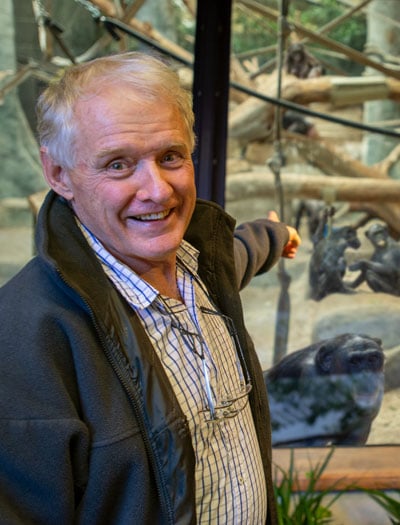
WORLD TRANSFORMATION MOVEMENT
Kent, England
JEREMY GRIFFITH

Australian biologist Jeremy Griffith was raised on a sheep station in rural New South Wales and educated at Geelong Grammar School in Victoria, one of the most highly regarded schools in the world. Jeremy gained first class honours in biology in the state matriculation exams, and in 1965 began a science degree at the University of New England in northern New South Wales. While there, Jeremy played representative rugby union football, making the 1966 trials for Australia’s national team, the Wallabies.
Deferring his studies in 1967, Jeremy hitchhiked to Tasmania, determined to save the remarkable dog-like marsupial, the Thylacine, or ‘Tasmanian Tiger’, from extinction. The search was to last more than six years — the most thorough investigation ever into the plight of the Tasmanian Tiger — but sadly concluded it was extinct. The quest generated articles in the American Museum of Natural History’s journal, Natural History, and Australian Geographic, and featured in an episode of the Australian television series A Big Country.
In 1971 Jeremy completed his BSc in zoology at the University of Sydney and the following year, in the same self-sufficient spirit with which he had undertaken the ‘Tiger’ search, he established Griffith Tablecraft, a highly successful business manufacturing furniture based on his own simple and natural designs. In addition to his design work, Jeremy is also an accomplished artist.
It was during this time that, at age 27, Jeremy realised that trying to save animals from extinction or trying to build ideal furniture wasn’t addressing the real issue behind the extraordinary imperfection in human life, which is our species’ ‘good and evil’-conflicted behaviour, and that what was really needed in the world was a deeper understanding of ourselves — so it was to this issue of the human condition that Jeremy turned his attention, a study that has remained his life’s focus.
Jeremy started writing about the human condition in 1975, established the World Transformation Movement (WTM) in 1983 (which is dedicated to the study and amelioration of the human condition), and is the author of numerous books on the subject, including the 2004 bestseller A Species In Denial, and in 2016, FREEDOM: The End Of The Human Condition, his “summa masterpiece”.
Jeremy’s full biography is available on HumanCondition.com.